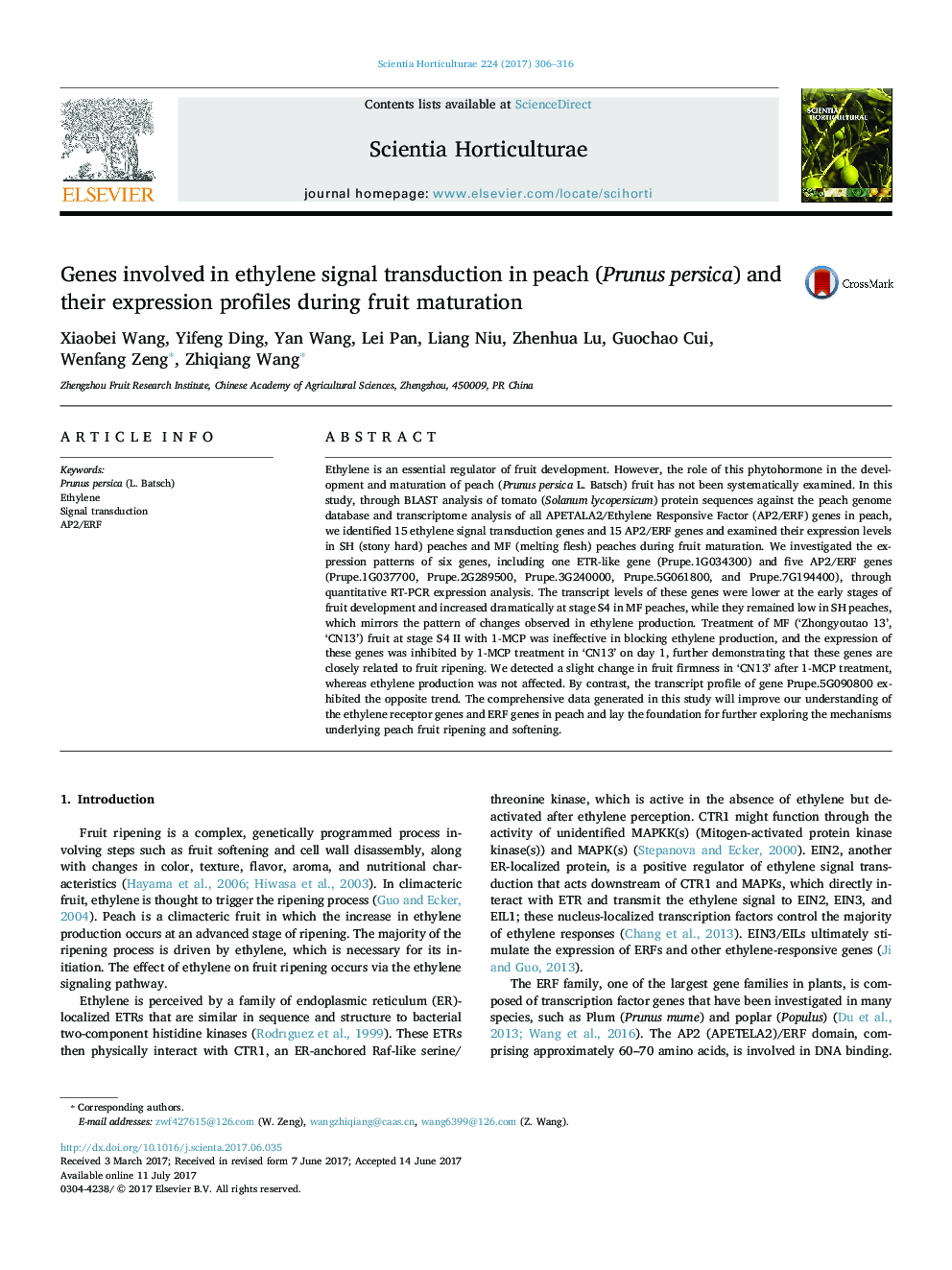| Article ID | Journal | Published Year | Pages | File Type |
|---|---|---|---|---|
| 5769425 | Scientia Horticulturae | 2017 | 11 Pages |
â¢SH and MF peaches were used to study ethylene transduction.â¢Ethylene production was not blocked in peaches with 1-MCP treated.â¢1 ETR-like and 6 ERF genes were co-expressed with ACS1 during fruit maturation.â¢These genes (1 ETR-like gene and 6 ERF genes) were affected by 1-MCP effectively.
Ethylene is an essential regulator of fruit development. However, the role of this phytohormone in the development and maturation of peach (Prunus persica L. Batsch) fruit has not been systematically examined. In this study, through BLAST analysis of tomato (Solanum lycopersicum) protein sequences against the peach genome database and transcriptome analysis of all APETALA2/Ethylene Responsive Factor (AP2/ERF) genes in peach, we identified 15 ethylene signal transduction genes and 15 AP2/ERF genes and examined their expression levels in SH (stony hard) peaches and MF (melting flesh) peaches during fruit maturation. We investigated the expression patterns of six genes, including one ETR-like gene (Prupe.1G034300) and five AP2/ERF genes (Prupe.1G037700, Prupe.2G289500, Prupe.3G240000, Prupe.5G061800, and Prupe.7G194400), through quantitative RT-PCR expression analysis. The transcript levels of these genes were lower at the early stages of fruit development and increased dramatically at stage S4 in MF peaches, while they remained low in SH peaches, which mirrors the pattern of changes observed in ethylene production. Treatment of MF ('Zhongyoutao 13', 'CN13') fruit at stage S4 II with 1-MCP was ineffective in blocking ethylene production, and the expression of these genes was inhibited by 1-MCP treatment in 'CN13' on day 1, further demonstrating that these genes are closely related to fruit ripening. We detected a slight change in fruit firmness in 'CN13' after 1-MCP treatment, whereas ethylene production was not affected. By contrast, the transcript profile of gene Prupe.5G090800 exhibited the opposite trend. The comprehensive data generated in this study will improve our understanding of the ethylene receptor genes and ERF genes in peach and lay the foundation for further exploring the mechanisms underlying peach fruit ripening and softening.
